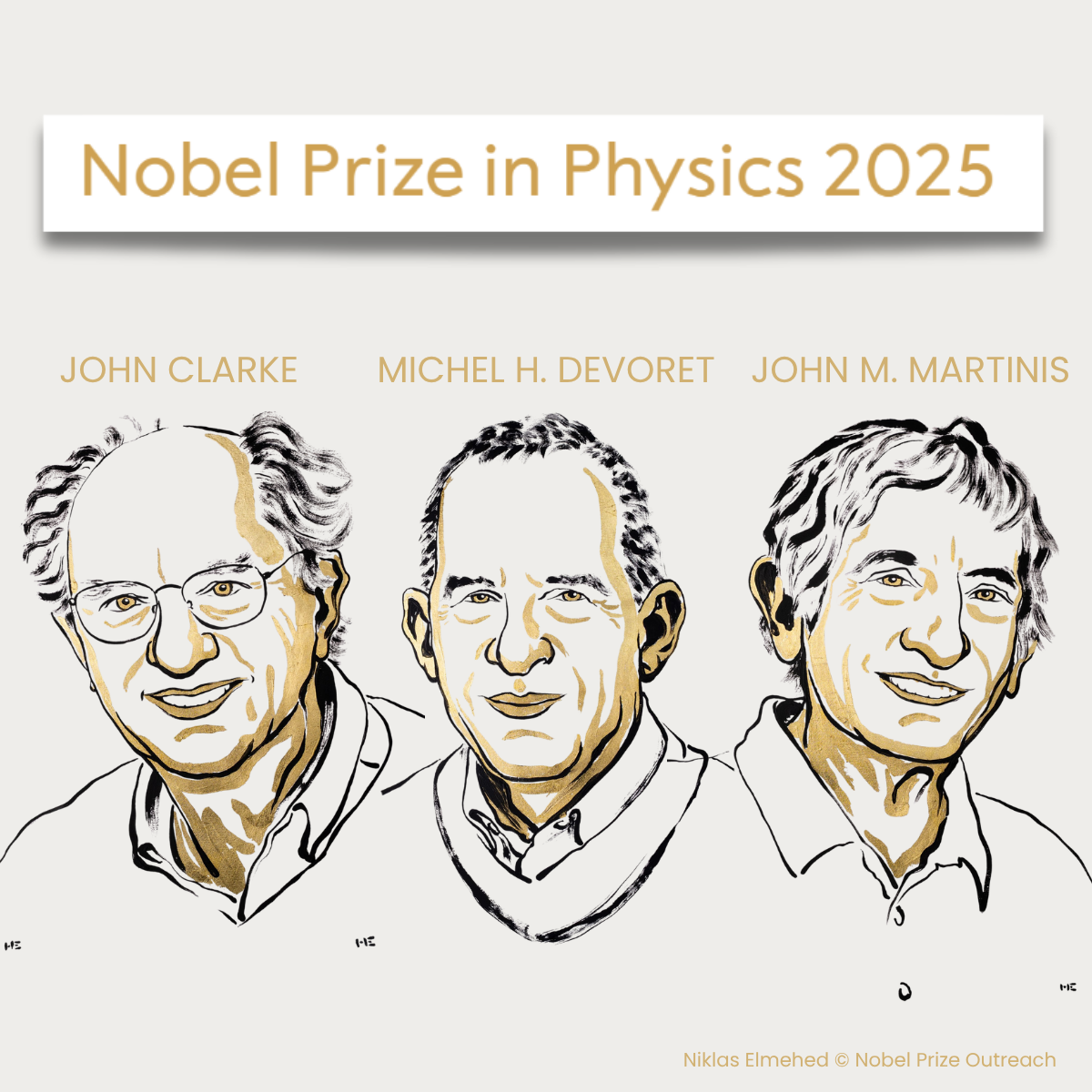Awarded to John Clarke, Michel Devoret, and John Martinis, this Nobel Prize recognizes their pioneering work demonstrating the macroscopic quantum tunneling effect and the quantization of energy at the scale of a superconducting quantum circuit. A work that is the basis for current breakthroughs toward quantum computers using this type of circuit, like those developed in France by Alice&Bob for example.
This distinction continues the remarkable line of work of French Nobel Prize winners in the quantum field and highlights French excellence in this strategic field.

Niklas Elmehed © Nobel Prize Outreach
Michel Devoret began his research work with a thesis completed at the University of Orsay (Paris-Saclay University) and carried out in the Condensed State Physics Department at the CEA in Saclay. It's in this department, where he later was be hired, that the foundations of his expertise were grounded.
Michel Devoret then joined John Clarke's laboratory for a postdoctoral fellowship. There, along with John Martinis, the three physicists demonstrated the macroscopic quantum effect, now accounted for the Nobel Prize in Physics.
Upon his return to the CEA, where he became later a research director, he founded the Quantronics group with Daniel Estève and Cristian Urbina. He led this group for about fifteen years before taking a professorship at Yale in the early 2000s and continued his work there. The Quantronics group formed a school of thought on superconducting quantum circuits and conducted pioneer work, especially on the first quantum bits and circuits. Their work helped inforce France's position in the race for quantum computing.
A member of the French Academy of Sciences, Michel Devoret's work contributed to establish an experimental bridge between integrated circuit electronics and quantum mechanics.
The CEA congratulates Michel Devoret and his co-laureates and acknowledges his exemplary international career, which illustrates the universality of science.